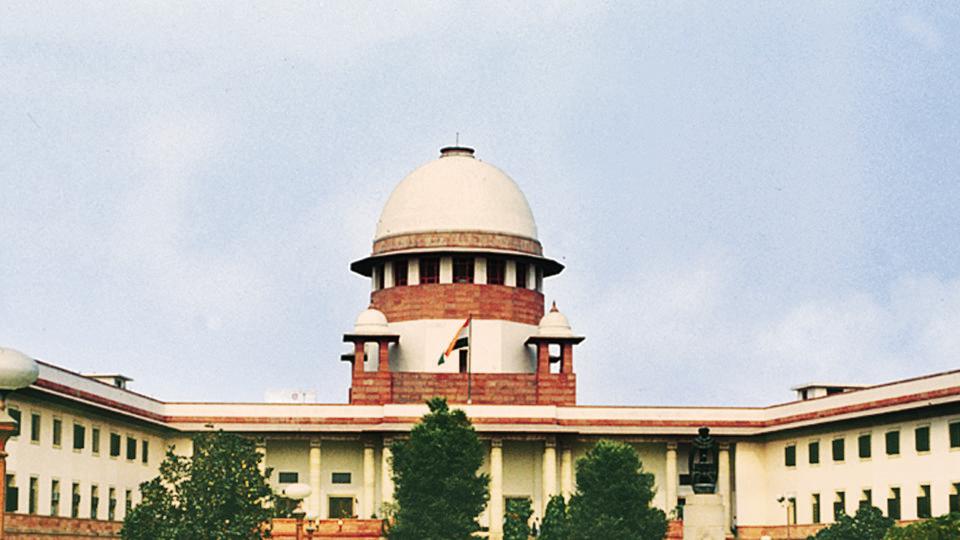
The apex court issued a notice to the Centre on the petition filed by one Farjana and tagged the matter along with a batch of petitions to be heard by the constitution bench.
The Supreme Court today sought a response from the Centre on a fresh plea challenging practices of polygamy and ‘nikah halala’ among Muslims, as it referred the matter to a constitution bench that has been already asked to hear a batch of similar petitions.
A bench comprising Chief Justice Dipak Misra and justices A M Khanwilkar and D Y Chandrachud considered the submissions of senior advocate Vikas Singh and lawyer Ashwini Upadhyay that the petition is listed before a five-judge constitution bench for final adjudication.
The apex court issued a notice to the Centre on the petition filed by one Farjana and tagged the matter along with a batch of petitions to be heard by the constitution bench.
“Petitioner is filing this petition under Article 32 of the Constitution seeking a writ, order or direction in the nature of mandamus to declare polygamy and nikah halala, practiced in Muslim community, illegal and unconstitutional for being violative of Articles 14, 15, 21 and 25 of the Constitution,” the plea said.
The petition further sought a declaration that extra-judicial talaq is a cruelty under Section 498A of the IPC, nikah halala is an offence under Section 375 of the IPC, and polygamy is an offence under Section 494 of the IPC, 1860.
The apex court, which on August 22 last year had banned the age-old practice of instant ‘triple talaq’ among Sunni Muslims, had on March 26 this year decided to refer to a larger bench a batch of pleas challenging the constitutional validity of polygamy and ‘nikah halala’ among Muslims.
While polygamy allows a Muslim man to have four wives, ‘nikah halala’ is a process in which a Muslim woman, who wants to re-marry her husband after divorce, has to first marry another person and get a divorce from the second person after the consummating the marriage.
The pleas were referred to a larger bench by the Supreme Court after an earlier five-judge constitution bench, in its 2017 verdict, had kept open the issue of polygamy and ‘nikah halala’, while quashing the practice of ‘triple talaq’.
It had also issued notices to the Law and Justice Ministry, the Minority Affairs Ministry and the National Commission of Women (NCW) at that time.
Some petitions have also challenged the practices of ‘Nikah Mutah’ and ‘Nikah Misyar’ — two types of temporary marriages where duration of the relationship is specified and agreed upon in advance.
In one of the petitions, one Sameena Begum has said that by virtue of Muslim Personal Law and Section 494 of the Indian Penal Code (marrying again during lifetime of husband or wife) was rendered inapplicable to Muslims and no married woman from the community has the avenue of filing a complaint against her husband for the offence of bigamy.
Another plea was filed by one Rani alias Sabnam who alleged that she and her three minor kids have been thrown out of the matrimonial home after her husband re-married. She has sought that the practices of polygamy and ‘nikah halala’ among Muslims be declared as unconstitutional.
A similar plea was filed by Delhi-based Nafisa Khan seeking almost same reliefs.
She has sought to declare the Dissolution of Muslim Marriages Act, 1939, as unconstitutional and violative of Articles 14, 15, 21 and 25 (freedom of conscience and free profession, practice and propagation of religion) of the Constitution in so far as it fails to secure for Indian Muslim women the protection from bigamy which has been statutorily secured for women in India belonging to other religions.
The top court had also allowed Muslim Women Resistance Committee, Kolkata to file an application for impleadment as a party in the hearing.



